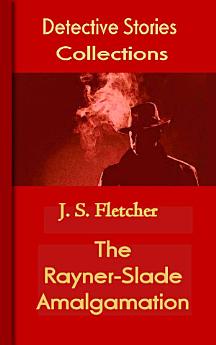The Rayner-Slade Amalgamation: Detective Stories Collections
About this ebook
"The housekeeper said I was to give you that as soon as you got in, sir," he announced. "There's a telegram in it that came at four o'clock this afternoon—she couldn't send it on, because she didn't know exactly where it would find you in Manchester."
Allerdyke took the envelope, tore it open, drew out the telegram, and stepped beneath the nearest lamp. He muttered the wording of the message—
"On board SS. Perisco
"63 miles N.N.E. Spurn Point, 2.15 p.m., May 12th.
"Expect to reach Hull this evening, and shall stop Station Hotel there for night on way to London. Will you come on at once and meet me? Want to see you on most important business—
Ratings and reviews
About the author
At age 20, Fletcher began working in journalism, as a sub-editor in London. He subsequently returned to his native Yorkshire, where he worked first on the Leeds Mercury using the pseudonym A Son of the Soil, and then as a special correspondent for the Yorkshire Post covering Edward VII's coronation in 1902.
Fletcher's first books published were poetry. He then moved on to write numerous works of historical fiction and history, many dealing with Yorkshire, which led to his selection as a fellow of the Royal Historical Society.
Fletcher wrote several novels of rural life in imitation of Richard Jefferies, beginning with The Wonderful Wapentake (1894). Michael Sadleir stated that Fletcher's historical novel, When Charles I Was King (1892), was his best work.
In 1914, Fletcher wrote his first detective novel and went on to write over a hundred more, many featuring the private investigator Ronald Camberwell.











